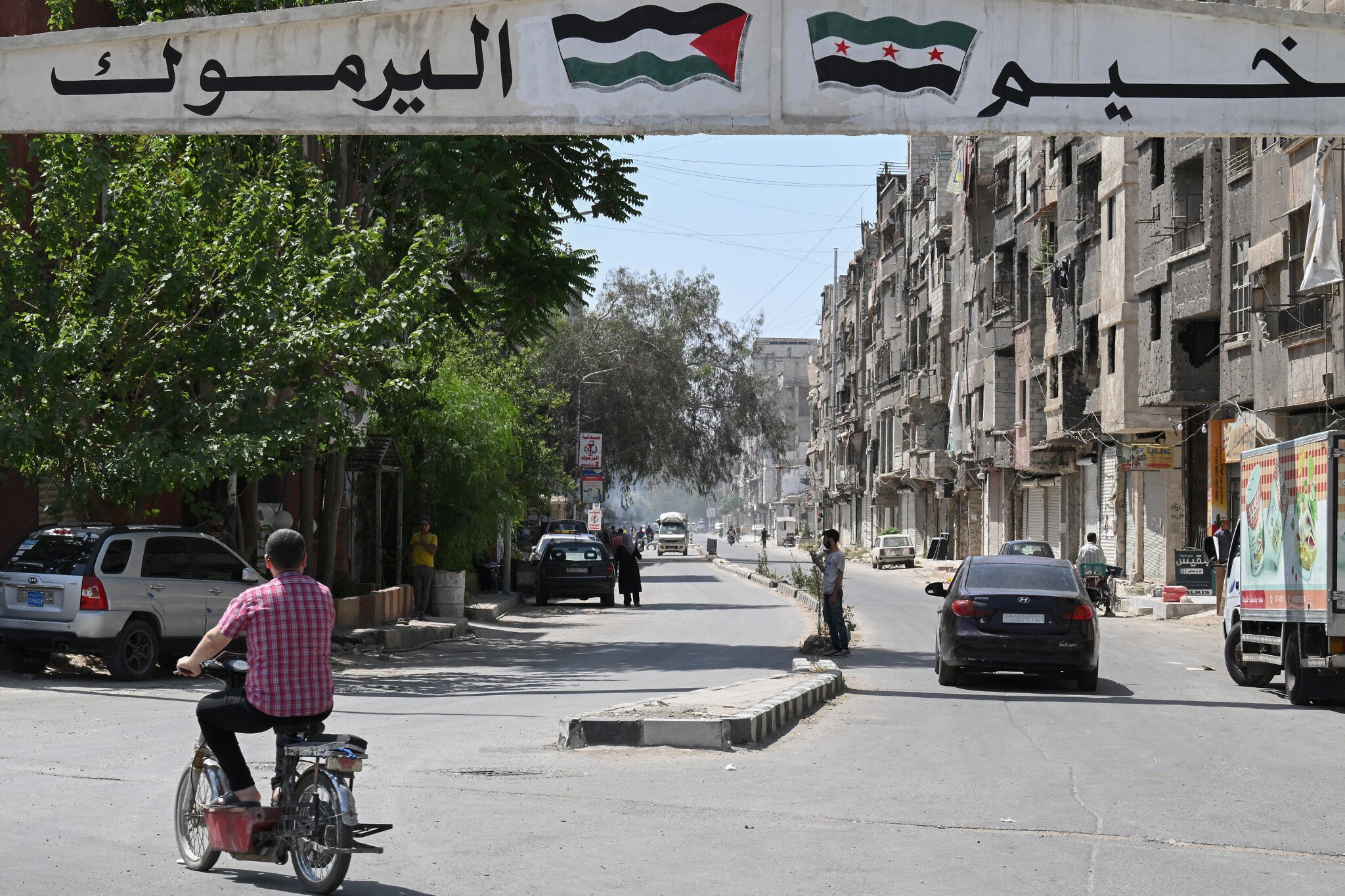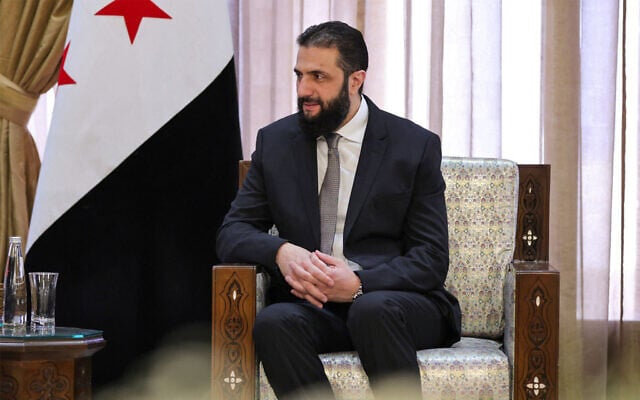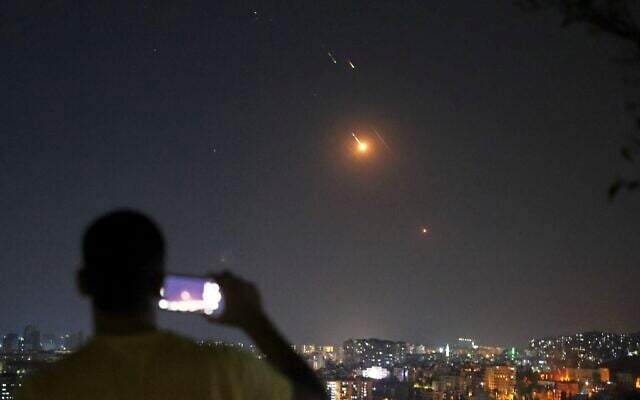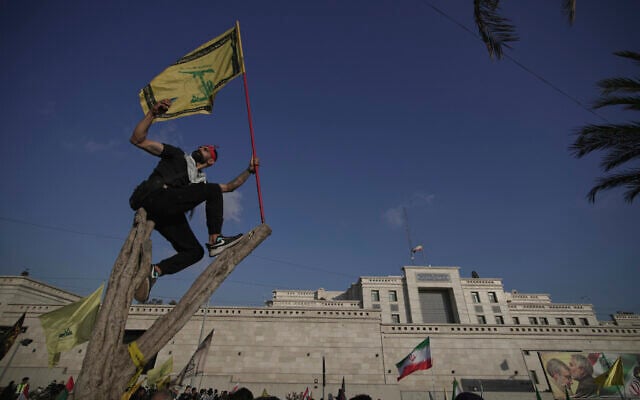



Israel’s overture this week to Syria and Lebanon for a peace deal has sparked mixed reactions in both countries, where the idea of normalizing ties with the Jewish state has long been considered taboo.
On Monday, Foreign Minister Gideon Sa’ar said his country had an “interest in adding countries, Syria and Lebanon, our neighbors, to the circle of peace and normalization while safeguarding Israel’s essential and security interests.”
Beirut and Damascus did not comment on Sa’ar’s words.
His statement comes amid major shifts in the region’s power dynamics, including the fall of longtime Syrian ruler Bashar al-Assad in December and the weakening of Lebanese terror group Hezbollah after its latest war with Israel.
Syria’s new Islamist authorities have confirmed they held indirect talks with Jerusalem to reduce tensions after the Israeli army took over the UN-patrolled buffer zone in southern Syria and bombed countless Syrian army positions.
Interim President Ahmed al-Sharaa has repeatedly stated that Damascus does not seek conflict with its neighbors, asking the international community to pressure Israel into stopping its attacks. He has also refrained from using his predecessor Assad’s terms for Israel, such as “the usurping entity” or “the Zionist enemy.”
Amid a rapidly shifting regional landscape, some Syrians have expressed a tentative openness to the prospect of normalization.
“There is no problem with conducting peace negotiations, but in a way that maintains Syria’s dignity,” said housewife Rania al-Fawakhiri, sitting in a cafe in Damascus. “Of course, we are not talking about complete normalization, but conditional normalization that does not undermine our rights.”
Syria has said that the goal of ongoing negotiations is the reimplementation of the 1974 ceasefire between the two countries.
In the same cafe, lawyer Awad al-Hamad said that Syrians would support “any peace that leads to the restoration of Syrian rights.”
“We want our land, we have occupied land,” he added, referring to the Golan Heights, which he said will “only ever be Arab and Syrian.”
Israel took control of the Golan Heights during the 1967 war and then annexed it in 1981, in a move not recognized by most of the international community.
In his statement, Sa’ar stated that the Golan Heights “will remain part of the State of Israel” under any future peace agreement. Around 50,000 people live in the Golan, and Israel is highly unlikely to ever agree to cede any of the area. During Donald Trump’s first administration, the US officially recognized Israeli sovereignty over the area.
For decades under Assad’s rule, Syrian school curricula presented Israel as an “enemy” and an “occupying entity,” and deemed the liberation of the Golan a “national duty.”
Syria and Israel have technically been in a state of war since 1948. Under Assad, Syria repeatedly asked for the Golan Heights to be returned in exchange for peace.
Prior to the current indirect talks, no negotiations had taken place since the outbreak of the Syrian civil war in 2011, which saw Iran and its terror proxies expand their networks in the country.
Israel’s interest in normalizing comes after many of its enemies were weakened in its wars in Lebanon, Gaza and Iran.
The United States has been strongly pushing for normalization, with Syria envoy Tom Barrack saying Sunday that Sharaa “has indicated that he doesn’t hate Israel… and that he wants peace on that border.”
Barrack also asked Lebanese officials to formally commit to fully disarming Hezbollah, one of Israel’s sworn enemies.
Israel has repeatedly bombed Lebanon, saying it is targeting Hezbollah positions that breach a November ceasefire that sought to end the war with the Iran-backed group.
Lebanese officials have vowed that state forces will be the sole bearers of arms and demanded that Israel fully withdraw its troops from Lebanon.
Hezbollah’s areas of influence in south and east Lebanon, as well as Beirut’s southern suburbs, saw heavy destruction, while the country’s already crippled economy suffered heavy blows.
Walking in Beirut’s Hamra street, 71-year-old Naim Qassir said that “Lebanon’s well-being comes first, and if the only way to get that is through normalization… we could have a peace treaty to rebuild our country.”
A few meters away, 46-year-old driver Ahmed Shamas said that “even if the whole world normalizes with Israel… we, the owners of the land in the south, the Beqaa and Dahiyeh [Beirut’s southern suburbs], will not.”
“We will fight it until the end of time.”




